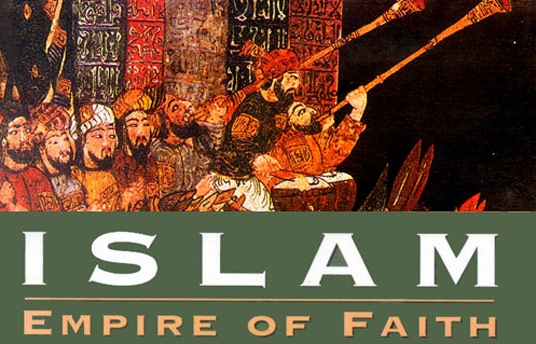DFI Film Review: ‘Islam: Empire of Faith’
Aug 04, 2013

By Nicholas Davies
For non-Muslims, Ramadan in the Gulf does not come without its challenges, but at the same time it offers an excellent opportunity to gain deeper knowledge about a religious practice that is one of the most significant on the planet today.
The gentle and subdued atmosphere of the Holy Month, brought about by the observation of the fast and focus on spirituality, is easily admired for the peace it brings to our Muslim brothers and sisters. But it can also be taken as a great opportunity to learn more about, and be inspired by, a way of life that is foreign to many of us.
The three-part American documentary series ‘Islam: Empire of Faith’ is a vast history of the rise of Islam and the empire it established, which, at its height, stretched from Spain and Morocco in the west as far as China in the east.
The series is especially good for its outlining of the story of the life of the Prophet Muhammad and the tenets on which he founded the Islamic philosophy and religion. The first part details the struggles and successes of early Muslims in coming together and, through sheer force of will and faith, establishing a compassionate, inclusive and just way of life in the face of the selfish and at times cruel establishment.
Details around the importance of and the attitude toward revered people, texts and places are particularly well outlined. We come to understand very clearly, for example, why the Prophet is seldom represented in images, if at all; the history of the importance of words in pre-Islamic Arabia and so the reasons the words and phrases of the holy Qur’an hold such significance for Muslims in their religious practice; and why the Kaaba at Mecca marks the physical centre of Islam. There is no more powerful image to be had than imagining millions of people around the globe, all of them focusing together and at the same time on the betterment of humanity, all of them facing the centre point of a global circle.
The second and third parts detail the impact on the world – up to the present day – of the acccomplishments of the science, technology and art of this culturally varied religious community. The eventual decline of the empire, beginning with the European Christian Crusades of the late 11th century and following through Ottoman rule, make up the rest of the story.
The series does suffer from a few problems – it focuses on the peaceful, industrious, educated centre of the empire while glossing over the wars waged at its borders and the violence of the series of invasions and takeovers that are the common narrative of the building of any empire. Further, it repeatedly throws unnecessarily pointed and uncompassionate barbs at the Europe of the Dark Ages, languishing in an unenlightened and culturally primitive state – while Cordoba had running water and vast palaces, we are told, the people of Paris were living in shacks beside the river. True enough, but there is an edge of mockery in the documentary’s tone at these points that is not required in what is otherwise a well-balanced historical account of the Islamic Empire.
Perhaps the strongest impact of the series is twofold. On the one hand, it brings to the fore and makes comprehensible the basic tenets of Islam and makes no bones about the fact that this worldwide religion is maligned and misunderstood by a world that remains ignorant – and often afraid – of its basic drive to establish a common goal of the betterment and fair treatment of all the members of the human tribe. It also very cleverly connects and compares Islamic philosophy with the popular notion of social justice, which places the Muslim way of life strongly in a contemporary and worldwide context.
The series is from 2000, but it’s still a great document for learning more about Islam, understanding better the culture we in the Gulf are immersed in – and perhaps giving non-Muslims in the region a deeper sense of what is going on all around us in the spiritual lives of our colleagues and neighbours, not only during the Holy Month but all the year long.